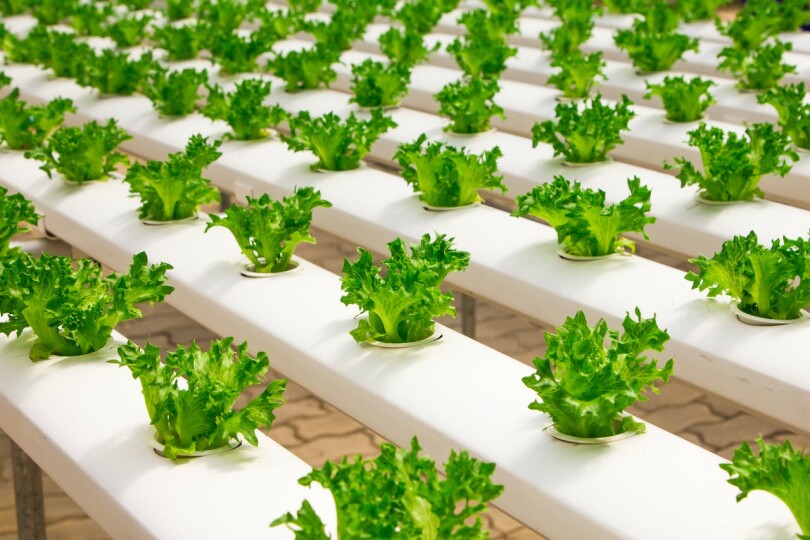Why Is the Gulf Attracting Climate Tech Businesses?
28 Jun 24
Enviro ChatThe Global News Source for the World of Science and Chemicals
11 December 2023
Enviro Chat
It is believed that the global population will exceed 9.8 billion by 2050, representing almost a 20% increase from the number of people sharing the planet today. Of course, an increase in population will necessitate a greater yield in food production, which can most effectively be achieved by optimising agricultural methods and implementing technological solutions.
Vertical farming is one such discipline at the forefront of the industry. By cultivating crops indoors, on stacked shelves and under tightly controlled conditions, it’s possible to use fewer resources, accelerate growing times, maximise yields and reduce supply chain difficulties in one fell swoop. It’s no surprise, then, that the UAE is pouring significant resources into this exciting new avenue of agricultural research.
Technology underpins the success of the vertical farming concept. Each crop is individually and continually monitored to ensure that it is experiencing optimal growing conditions, with the precise amounts of water, light and fertiliser deployed to maximise its yield and minimise the consumption of precious resources.
Because the produce is stacked vertically, it can produce yields almost 400 times greater per square foot than traditional farming methods, while using nearly 95% less water. This makes it a highly attractive proposition for governments all around the globe – but especially those facing the climatic challenges commonplace throughout the Middle East.
With that in mind, the UAE has been a leading proponent of vertical farming techniques in recent years. It has been estimated that the Middle East and North Africa (MENA) region will witness a compound annual growth rate (CAGR) of 21.7% in the vertical farming industry between now and 2030, reaching a total value of $6.2 billion in that year.
Unsurprisingly, the UAE has been leading the charge and in 2022, Abu Dhabi became the home of the headquarters of prominent vertical farming company iFarm. iFarm commands a total growing area in excess of 13,000m2 and has won numerous prizes for its exploits, including ‘Best Social Impact Startup’ at the Nordic Startup Awards and ‘Best AI/Automation Developmet’ at the Vertical Farming World Awards. Now, it’s opening its first site in the UAE in Dubai.
Operating under the moniker of the Multigreens Farm, the site will produce leafy greens, microgreens, herbs, baby leaves and edible flowers for the hotel, restaurant and catering (HoReCa) industries. It is located just 30 minutes from Dubai and will therefore be able to deliver ultra-fresh produce without the need to import from overseas, thus slashing the costs and emissions associated with the supply chain.
The farm will cover 712m2 and once fully operational, will produce up to three tonnes of fresh greens on a monthly basis. Given that the UAE consumes around 22,900 tonnes of the stuff each and every year, sites like the Multigreens Farm will go some way towards making it self-sustainable in both economic and operational terms for the long term.
DOWNLOAD PDF

2 Day Seminar Program
@ ArabLab+ 2024
24 & 25 September 2024
Your stay in Dubai
Labkit
Product News
Chemkit
Product News
Thinking about exhibiting at ARABLAB 2024? Watch our video to find out more.
Join the world’s leading organisations…
Join our mailing list and receive the ARABLAB newsletter and event updates.